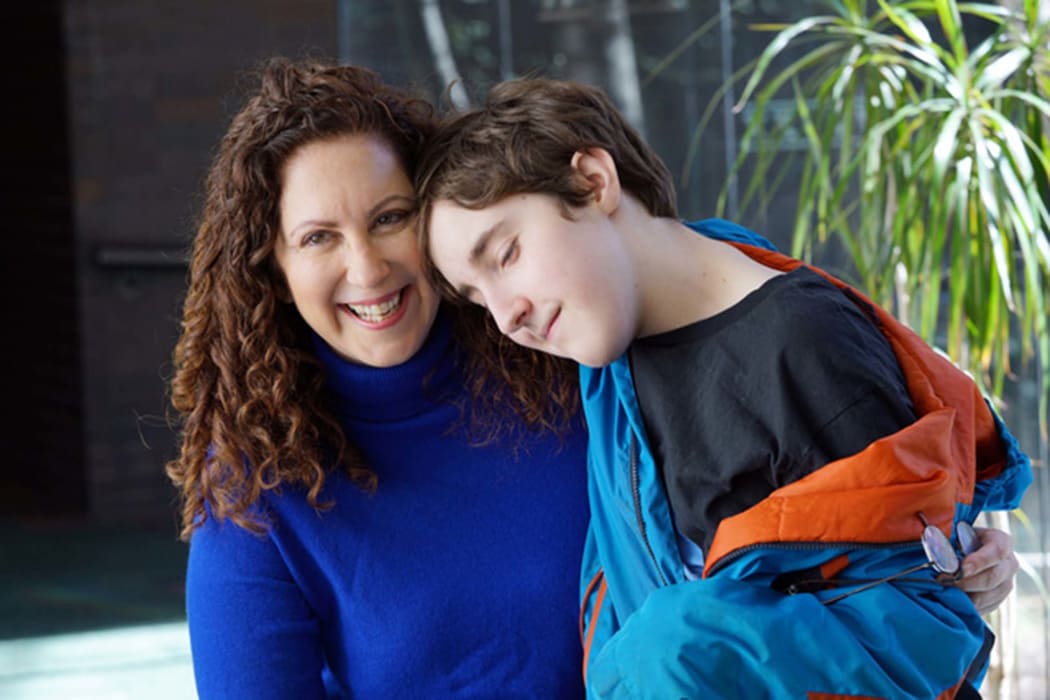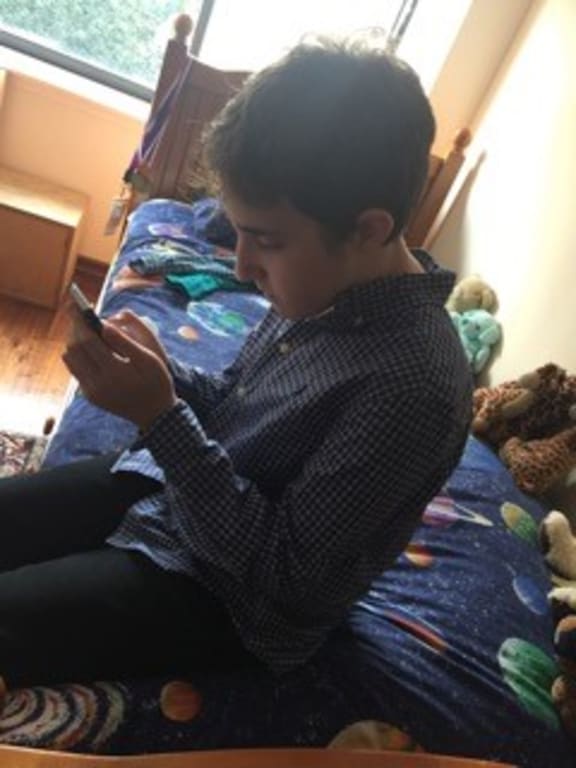
Photo: Supplied
Technology has not socially isolated Judith Newman’s teenage son Gus, but helps him communicate and connect with people.
In her book To Siri With Love, the American journalist tells how detail-obsessed Gus, who is autistic, learnt to converse and and engage more deeply with the world thanks to his virtual friend Siri.
Gus’s relationship with Apple’s virtual assistant (or voicebot) gives Judith an insight into her son’s thoughts and feelings and has brought them closer, she says.
One day when Gus was 11, Judith was reading a list of '26 Things You Didn’t Know You Could Do With Your Phone' on BuzzFeed.
One of the things was Siri’s ability to tell you which planes were flying overhead.
Judith tried it and asked Siri, who provided a list of flights with their airlines and current altitudes.
“I just looked at it and thought ‘Why would anybody want a phone to do this? What is the point?’ I was asking that rhetorically to myself, and my son Gus who happened to be nearby just said ‘So you know who you’re waving at, Mommy’.”
Gus had never paid attention to Siri before, she says.
“He picked up the phone and start asking questions – and that was the beginning of a beautiful relationship.”
Most parents get challenged by their children's seemingly endless questions, Judith says.
In her case, it was an endless stream of detailed questions from Gus about transport systems, weather formations, turtles and the letter K.
“I would just hand the phone over to him and he could go to town.”
Previously, Gus had difficulty speaking ‘to’ people, Judith says – “He would just say what he wanted to say and then walk out of the room” – but with Siri he could practice back-and-forth conversation.
“Any of those questions that you might feel reluctant to ask another human being she would answer...”

Gus Newman Photo: Judith Newman
Siri even taught Gus about politeness – something it can be difficult to teach a kid who doesn’t pick up social cues, Judith says.
“When you have somebody who will correct him when he asks something in a very snappish way, it’s a wonderful thing and it’s a very useful thing.”
If you have a child who is autistic, be very patient with any siblings who aren’t on the spectrum, she says.
“They’re allowed to be exasperated and they're allowed to be embarrassed. If [Gus] walks down the street quietly quacking to himself as he kisses my hand or hopping up and down in time to what he sang to me, sometimes my other son would like to jump out the window. But he’s gotten to the point where he can laugh about it. That, to me, is a very good thing.”
People tell Judith she’s brave to be so honest in the book, but there would have been no point writing it unless she was willing to reveal some of the things a lot of parents think but don’t often say, she says.
“Everybody, with any kind of child, sometimes has to admit to themselves that what they’re doing is boring and it makes you want to tear your hair out.”
She admits her deepest motivation for writing it was a hope that it will in some way help Gus find a job and a place to be in the future.
He’s is a super-social person and her biggest worry is him being lonely.
The first time Judith heard Gus ask Siri ‘Would you marry me?’ it took her breath away.
“I had no idea my son thought about companionship in that way.”
She advises fellow parents not to reject technology entirely as you never know what it can bring out in your kids.
Partly thanks to his relationship with Siri, Gus now takes a daily interest in current events.
“It may not seem like much to other people, but for him to bringing me the news about Trump… Every day he reads me the headlines, and that is a huge, huge thing because it means that his world is opening up in ways that I didn’t expect that it would.”

